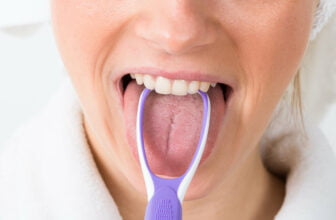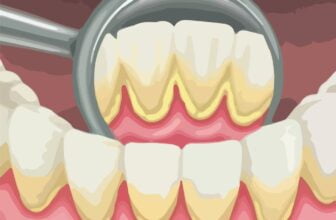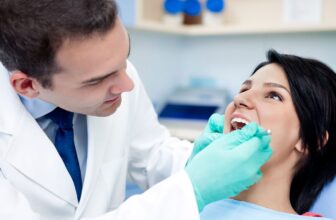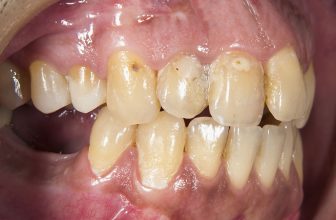The Importance of Tooth Flossing for Optimal Oral Health
Disclaimer
Keeping your teeth and gums healthy is crucial for maintaining good overall health. While brushing your teeth twice a day is important, it’s not enough to keep your teeth and gums healthy. That’s where tooth flossing comes in. In this article, we’ll discuss the importance of tooth flossing, the benefits of flossing, and how to floss correctly.
What is Tooth Flossing?
Tooth flossing is a process of cleaning the tight spaces between your teeth where a toothbrush cannot reach. Flossing removes food particles, plaque, and bacteria that can lead to cavities, gum disease, and bad breath. Dental floss is a thin, nylon thread that is used to clean these tight spaces.

The Importance of Tooth Flossing
Tooth flossing is an essential part of your daily oral hygiene routine. Here are some reasons why flossing is important:
Prevents Tooth Decay
Tooth flossing removes plaque and food particles from between your teeth, preventing tooth decay. Plaque is a sticky film of bacteria that forms on teeth and produces acid that attacks tooth enamel. If left on teeth, plaque can lead to tooth decay.
Prevents Gum Disease
Flossing also removes plaque and bacteria from the gumline, preventing gum disease. Gum disease is an infection of the tissues that surround and support your teeth. It can lead to tooth loss if not treated.
Fresher Breath
Flossing removes food particles and bacteria from between your teeth, leading to fresher breath. When food particles and bacteria are left in your mouth, they can produce an unpleasant odor.
Saves Money
Regular tooth flossing can save you money by preventing costly dental procedures in the future. Preventing tooth decay and gum disease can help you avoid expensive dental treatments such as fillings, root canals, and tooth extractions.
Flossing for Children
Flossing for Orthodontic Patients
If you have braces or other orthodontic appliances, it’s essential to floss regularly. Orthodontic appliances can make it challenging to clean between your teeth, but it’s essential to remove plaque and food particles to prevent tooth decay and gum disease. There are specialized flossing tools available for orthodontic patients, such as floss threaders and interdental brushes.
Flossing and Diabetes
If you have diabetes, you’re at a higher risk of developing gum disease. Gum disease can also make it more challenging to control your blood sugar levels. Flossing regularly can help prevent gum disease and keep your blood sugar levels in check.
Flossing and Pregnancy
Pregnant women are also at a higher risk of developing gum disease due to hormonal changes in the body. Gum disease during pregnancy can lead to premature birth and low birth weight. Flossing regularly during pregnancy can help prevent gum disease and ensure a healthy pregnancy.

The Benefits of Flossing
In addition to preventing tooth decay and gum disease, there are other benefits to tooth flossing:
Improves Overall Oral Health
Flossing removes bacteria from the tight spaces between your teeth, reducing the risk of infection and inflammation in your mouth. This can improve your overall oral health and reduce the risk of oral cancer.
Reduces the Risk of Heart Disease
Flossing can also reduce the risk of heart disease. Research has shown that there is a link between gum disease and heart disease. Bacteria from gum disease can enter the bloodstream and cause inflammation in other parts of the body, including the heart.
Helps Maintain Healthy Gums
Flossing can help maintain healthy gums by removing plaque and bacteria that can cause gum disease. Healthy gums are an essential part of overall oral health.
Promotes a Brighter Smile
Flossing can help remove stains from your teeth, promoting a brighter smile. Stains can accumulate between your teeth, and flossing can help remove them.
How to Floss Correctly
Flossing is simple, but many people don’t floss correctly. Here are the steps to floss correctly:
- Start with 18 inches of floss: Wind most of the floss around the middle finger of one hand, and the rest around the middle finger of the other hand.
- Hold the floss tightly: Hold the floss tightly between your thumbs and forefingers.
- Gently guide the floss: Gently guide the floss between your teeth using a rubbing motion. Do not snap the floss into the gums.
- Curve the floss: Curve the floss into a C-shape against one tooth and gently slide
- Slide the floss: Slide the floss up and down against the tooth and under the gumline. Use a clean section of floss for each tooth.
- Repeat the process: Repeat the process on the remaining teeth.
- Be gentle: Don’t force the floss, as this can cause injury to your gums. Be gentle and take your time.

When to Floss
The best time to floss is after you brush your teeth, as it can help remove any remaining food particles and plaque. You should floss at least once a day, preferably before bedtime, to prevent bacteria from accumulating in your mouth overnight.
Choosing the Right Floss
There are different types of dental floss available, such as waxed, unwaxed, flavoured, and unflavoured. It’s important to choose the right type of floss that suits your needs. If you have wider gaps between your teeth, use a thicker floss or dental tape. If you have tight spaces between your teeth, use a thin floss.
In addition to dental floss, there are also other interdental cleaning tools available, such as interdental brushes and water flossers. These tools can be useful in addition to dental floss, but they should not be used as a substitute for flossing.
In conclusion, tooth flossing is an essential part of maintaining good oral health. It’s simple, easy, and affordable, and it can prevent a host of dental problems. It helps prevent tooth decay, gum disease, and bad breath, and can even reduce the risk of heart disease. By including tooth flossing in your daily oral hygiene routine, you can enjoy a healthier, brighter smile and better overall health. Don’t forget to floss regularly and correctly, and consult your dentist if you have any questions or concerns about tooth flossing or your oral health. Here is the link of Ontario Dental Association to find the periodontist near you.
Source
- American Dental Association. Flossing. Retrieved from https://www.mouthhealthy.org/en/az-topics/f/flossing Mayo Clinic. (2020, April 14).
- Flossing: A guide to proper technique. Retrieved from https://www.mayoclinic.org/healthy-lifestyle/adult-health/in-depth/dental/art-20045598
- American Academy of Periodontology. Flossing. Retrieved from https://www.perio.org/consumer/brushing-and-flossing
- National Institute of Dental and Craniofacial Research. Gum Disease. Retrieved from https://www.nidcr.nih.gov/health-info/gum-disease/more-info
- Harvard Health Publishing. (2021, January). The benefits of brushing your teeth. Retrieved from https://www.health.harvard.edu/oral-health/the-benefits-of-brushing-your-teeth
- American Dental Association. Brushing Your Teeth. Retrieved from https://www.mouthhealthy.org/en/az-topics/b/brushing-your-teeth
- American Dental Association. Interdental Cleaners. Retrieved from https://www.mouthhealthy.org/en/az-topics/i/interdental-cleaners





